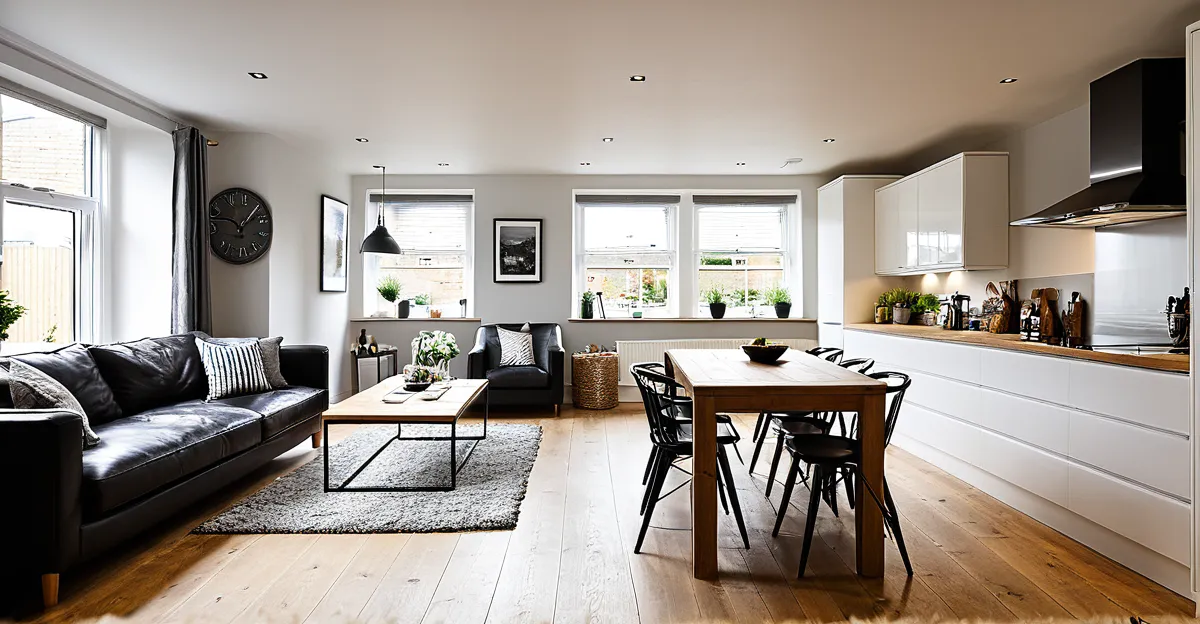Essential Decluttering Steps for UK Homes
Before diving into decluttering, assessing your space is crucial. Identify areas where clutter tends to accumulate—commonly hallways, kitchen counters, or living rooms in UK homes. This initial evaluation helps you target specific zones efficiently. Next is setting realistic decluttering goals; break down tasks into manageable steps with clear timelines. For example, aim to complete one room each week to avoid feeling overwhelmed.
A step-by-step declutter approach often works best, especially tailored to UK home organisation. Begin with less personal spaces, like utility rooms or storage cupboards, to build momentum. Then, progressively move to bedrooms or living areas. Each room benefits from customised strategies: UK kitchens might involve clearing worktops and cupboards, while compact flats require maximising vertical storage while minimising floor clutter.
This might interest you : What are the top tips for organizing small UK spaces?
Remember, even small, consistent actions lead to lasting change. Adopting decluttering methods UK residents find practical, such as categorising items by necessity and sentimental value, streamlines the process. By combining thoughtful assessment, clear goals, and room-specific techniques, transforming your UK living space into an organised haven becomes achievable and satisfying.
Smart Storage Solutions for Limited UK Spaces
Maximising storage in small UK homes requires smart solutions that make the most of every nook. Many UK storage ideas focus on utilising underused areas—think under stairs, above door frames, or beneath beds. These spots often go unnoticed but can house baskets, boxes, or bespoke shelving to ease clutter.
Also to discover : How do you create a minimalist interior in a UK setting?
When considering home storage solutions, multi-purpose furniture is invaluable. Pieces like ottomans with hidden compartments, foldaway tables, or sofas with built-in storage combine functionality and space-saving. In flats or terraced houses common across the UK, these options help maintain openness while boosting storage.
Additionally, organising small spaces UK benefits from integrating built-in storage. Custom cupboards or shelving units tailored to your room dimensions optimise vertical space and keep clutter off floors. Many UK retailers and brands offer modular options designed for compact homes.
The key lies in combining these strategies, selecting a mix of UK storage ideas to fit your unique layout. This approach complements decluttering methods UK households use. Smart storage creates effective systems, reducing the chance of clutter buildup and enhancing overall UK home organisation without sacrificing comfort or style.
Donating, Recycling, and Disposing Responsibly in the UK
Managing unwanted items responsibly is key to effective declutter waste disposal in the UK. Many households turn to UK donation options such as charity shops including Oxfam, British Heart Foundation, and local community centres, which accept clothes, books, and household items in good condition. Donating extends the life of usable goods and supports charitable causes, making it an environmentally and socially responsible choice.
For items that can’t be donated, identifying nearby recycling centres UK offers a sustainable route. Most councils provide specific facilities for recycling textiles, electronics, and bulky waste. Following local council guidelines for segregation ensures items are processed correctly, reducing landfill waste. For example, old furniture may need to be dismantled or scheduled for bulky waste collection.
An eco-friendly mindset also involves considering specialised recycling schemes. Many UK charities and retailers run textile take-back programmes or furniture reuse initiatives that prevent usable goods from being discarded prematurely. Combining these decluttering methods UK contributes to reduced environmental impact and fosters responsible consumer habits. Prioritising donation and recycling reinforces a sustainable approach to decluttering and supports wider community efforts.








